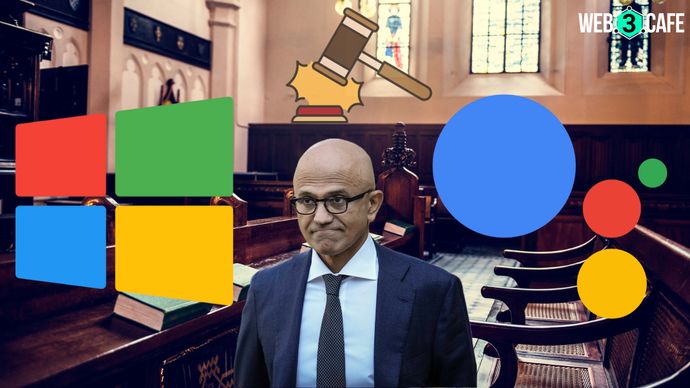Satya Nadella admits 'Money' motive amid revelations of Bing's struggles in Google antitrust trial
Microsoft CEO, Satya Nadella, testified in the US v. Google antitrust trial, highlighting Bing's challenges and the role of defaults in search engine competition.

Highlights
- In the US v. Google antitrust trial, Microsoft CEO Satya Nadella highlighted Bing's challenges in competing with Google
- Nadella emphasised the role of defaults in user behaviour and discussed AI's potential impact on the search market through Microsoft's partnership with OpenAI
- Google argued that Bing's struggles stemmed from Microsoft's mismanagement, sparking a debate over the significance of defaults in search engine competition
In the ongoing US v. Google antitrust trial, Microsoft CEO, Satya Nadella, takes centre stage as a key witness. The trial revolves around allegations of anti-competitive conduct by Google within the search engine market, drawing substantial attention due to its potential to reshape the competitive landscape.
Through Nadella's testimony, crucial insights have emerged, shedding light on the formidable challenges faced by Microsoft's Bing in its quest to compete with Google's dominant search platform.
A central theme in this legal battle is the pivotal role of defaults in influencing user behaviour, adding complexity to the ongoing debate about the future of online search and digital competition.
Why compete with Google? The money factor
At the heart of Nadella's testimony was the question: Why did Microsoft even attempt to compete with Google, a formidable giant in the search engine arena? Nadella's candid response was simple: money.
He viewed search as the largest software category, surpassing even Microsoft's iconic products like Windows and Office. Despite Bing not surpassing Google, it was a profitable venture for Microsoft.
“I used to think of Windows and Office as attractive businesses until I saw Search”
Nadella's strategic approach included a willingness to invest heavily in becoming Apple's default search engine, even if it meant losing up to $15 billion annually. This move was driven by the desire to acquire more data, a valuable resource for improving Bing's quality and attracting advertisers.
In Nadella's eyes, becoming Apple's default search engine was not merely about monetary gain but about creating a virtuous cycle that would elevate Bing's competitiveness.
AI's impact on the search market
Throughout his testimony, Nadella underscored the pivotal role of artificial intelligence (AI) in the search engine market, particularly emphasising Microsoft's transformative partnership with OpenAI, which has reshaped Bing's capabilities. However, Nadella also expressed concerns about AI's potential to further cement Google's dominance.
He pointed out that AI systems heavily rely on data for training and enhancement, which could lead publishers and platforms to enter exclusive data agreements with Google, sidelining other search engines. Nadella placed significant emphasis on the critical influence of defaults in shaping user behaviour.
He argued that users tend to adhere to pre-installed options, making the default status a crucial battleground in the fierce competition among search engines. Nadella consistently reiterated his belief in the substantial impact of defaults, irrespective of Windows' market share statistics.
When questioned about users' ability to switch search engines easily, he responded,
"My primary argument against that notion is that users rarely make the switch." For instance, the success story of Apple Maps, which, despite a rocky start, gained market share over the last decade thanks to its preinstallation on every iPhone. "People use it because it's the default,"
Google's counterargument and market dynamics
During the cross-examination, Google's counsel, John Schmidtlein, presented a different perspective. Schmidtlein contended that Bing's struggles were not solely the result of Google's default status but also stemmed from Microsoft's mismanagement of search and mobile products over the years.
He cited some Microsoft failures, from the early days of MSN Search to the costly demise of Windows Phone, as evidence of Google's superior execution. Schmidtlein also challenged the significance of defaults by pointing out that, despite Microsoft bundling Edge and Bing with Windows, Chrome and Google Search remained more popular among users. This was part of Google's argument that providing the best product was paramount.
The future of online search
The antitrust trial between Microsoft and Google underscores the complex dynamics of the search engine market. The role of defaults in shaping user behaviour and the competition between Google and Bing remain central points of contention.
The outcome of this trial could have far-reaching implications for the future of online search and digital competition. As the trial continues, the tech industry and legal experts eagerly await the verdict, which may ultimately determine whether Bing can ever truly challenge Google's dominance or if Google's argument for building the best search engine stands as the prevailing ethos in the world of online search.
